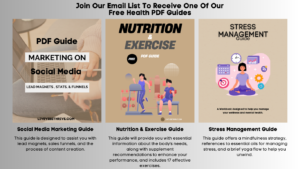1. **Multivitamin**
**Why it’s important:**
– **General Health:** Provides a broad spectrum of essential vitamins and minerals.
– **Nutrient Gaps:** Helps fill any dietary gaps.
**Key Benefits:**
– Supports immune function, energy production, and overall well-being.
**Considerations:** Choose a high-quality multivitamin tailored to your age, gender, and specific health needs.
2. **Vitamin D**
**Why it’s important:**
– **Bone Health:** Essential for calcium absorption and bone strength.
– **Immune Support:** Plays a critical role in immune function.
**Key Benefits:**
– Supports bone health, immune function, and mood regulation.
**Considerations:** Especially important for those with limited sun exposure or living in northern latitudes.
3. **Omega-3 Fatty Acids**
**Why it’s important:**
– **Heart Health:** Supports cardiovascular health.
– **Brain Function:** Important for brain health and cognitive function.
**Key Benefits:**
– Reduces inflammation, supports heart health, and enhances brain function.
**Considerations:** Choose high-quality fish oil supplements or plant-based alternatives like flaxseed oil if you’re vegetarian or vegan.
4. **Probiotics**
**Why it’s important:**
– **Digestive Health:** Supports a healthy gut microbiome.
– **Immune Support:** A significant portion of the immune system is in the gut.
**Key Benefits:**
– Improves digestive health, boosts immune function, and may enhance mood and mental health.
**Considerations:** Look for probiotics with multiple strains and a high CFU (colony-forming unit) count.
5. **Magnesium**
**Why it’s important:**
– **Muscle and Nerve Function:** Essential for muscle contraction and nerve function.
– **Bone Health:** Supports bone structure and strength.
**Key Benefits:**
– Relieves muscle cramps, supports bone health and promotes relaxation and sleep.
**Considerations:** Magnesium glycinate and citrate are well-absorbed forms.
6. **Vitamin C**
**Why it’s important:**
– **Immune Support:** Boosts immune function.
– **Antioxidant Properties:** Protects cells from damage.
**Key Benefits:**
– Enhances immune function, supports skin health, and acts as an antioxidant.
**Considerations:** Especially useful during cold and flu season or periods of high stress.
7. **Calcium**
**Why it’s important:**
– **Bone Health:** Essential for maintaining strong bones and teeth.
– **Muscle Function:** Necessary for muscle contraction and nerve transmission.
**Key Benefits:**
– Supports bone density and prevents osteoporosis.
**Considerations:** Often paired with vitamin D for better absorption.
8. **B-Complex Vitamins**
**Why it’s important:**
– **Energy Production:** Vital for converting food into energy.
– **Nervous System Health:** Supports brain function and mood regulation.
**Key Benefits:**
– Boosts energy levels, supports brain health and reduces stress.
**Considerations:** Particularly important for vegetarians and vegans who might have a lower intake of certain B vitamins.
9. **Zinc**
**Why it’s important:**
– **Immune Function:** Plays a critical role in immune response.
– **Cell Growth:** Important for cell growth and repair.
**Key Benefits:**
– Supports immune function, wound healing, and skin health.
**Considerations:** Zinc gluconate and zinc citrate are commonly recommended forms.
10. **Collagen**
**Why it’s important:**
– **Skin Health:** Supports skin elasticity and hydration.
– **Joint Health:** Important for joint function and reducing joint pain.
**Key Benefits:**
– Improves skin health, reduces joint pain, and supports bone health.
**Considerations:** Collagen supplements come in various forms, including powders and capsules.







